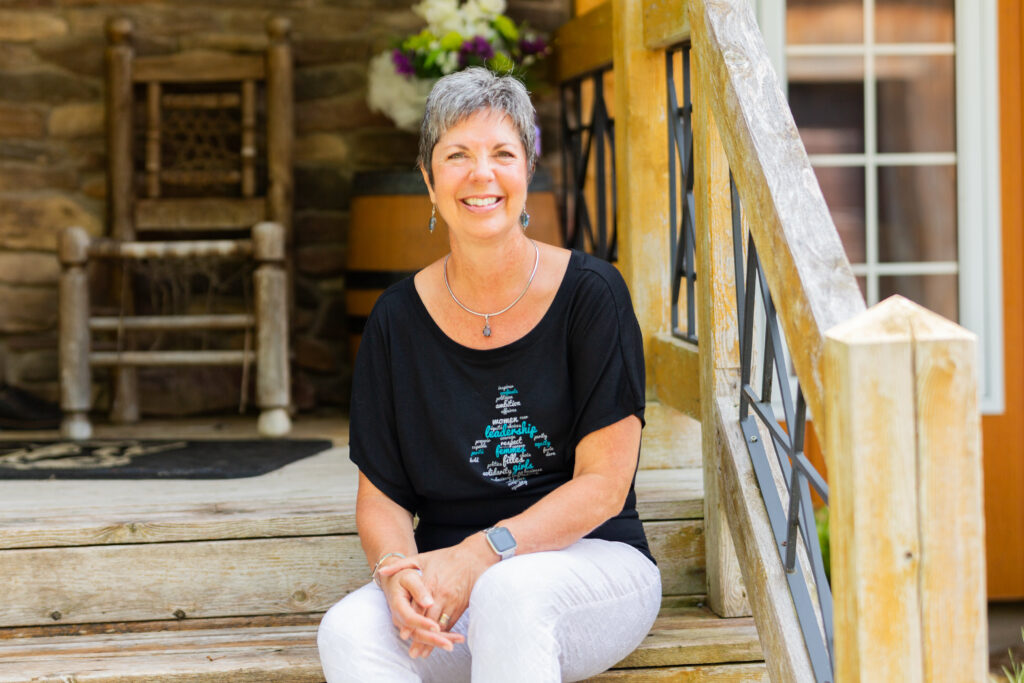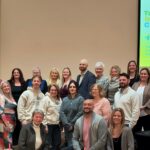
Doreen began her career in the hotel industry in 1984, becoming VP Marketing for The Sutton Place Hotels in Toronto in 1995. Three years later, she left her dream corporate job to start her own business and better accommodate her family needs. She and her husband Heinz moved to Alexandria to start a hospitality consulting firm that grew into a lead generation agency. They sold the business in 2016. At 55, Doreen returned to school to study entrepreneurship and gender. She graduated from Royal Roads University with an MA in Inter-Disciplinary Studies in 2022. She has since founded Business Sisters (Consœurs en Affaires for our Francophone Business Sisters) as a social enterprise that offers online and live events, peer-to-peer learning and gender-smart tools for women entrepreneurs. Her work is focused on the unique needs and passions of women business owners, especially those based in small towns and rural areas. She believes happy communities are fostered through collaboration, inclusion and diversity.
1-What motivated you to start this group for women in business, and what have been some of the biggest challenges you have faced along the way?
From 1998 to 2016, I owned a business in Alexandria and had limited involvement with local business groups as our clientele was outside the area. I found little value in networking locally as few actual business owners attended such groups, and there were no women business owners. After selling the company, I organized the first Business Sisters conference in 2018 to create an event where women business owners could have productive conversations and learn from each other about starting and growing a business, as well as balancing parenting and caregiving roles. I aim to support rural women business owners, as urban areas offer more resources for women entrepreneurs.
2-How has the group evolved over time, and what have been some of the key milestones or successes for the group?
From hosting two annual conferences in 2018 and 2019, I explored the idea of forming a network with monthly events offering entrepreneurial training in both French and English. However, the pandemic interrupted my plan. Instead, I completed my master’s thesis on “The entrepreneurial resilience of rural women business owners in a time of crisis” and learned about creating a social enterprise. In July 2022, we received a $100,000 grant from Desjardins’ Community Development Fund, which enabled us to rent a space for events, training, and mentorship for women business owners.
3-What are some of the biggest challenges that women in business face, and how does your group work to address these challenges?
Women business owners in general face several challenges, and sometimes those challenges are just amplified in rural contexts: they still bear the majority of family caregiving responsibilities. Traditional entrepreneurship often disregards family and emotional support. Women are criticized for not being risk-takers in business, which is a simplistic view — there’s evidence they are more debt-averse, which is different. Finally, in rural areas we suffer more from isolation, and lack of supports, ranging from childcare to business services. Business Sisters’ approach to entrepreneurship addresses these challenges head-on . We talk about personal well-being and family life, and work that into business planning. Finally because we bring together women from different regions and language backgrounds, we help create business relationships and a solid peer support group.
4-How does the group support and empower women in business, and what resources or services does it offer to its members?
Aside from an annual conference in the fall , and monthly networking events that alternate between SD&G and Prescott-Russell, we offer online and in-person workshops, plus one-on-one advisory services. Currently our advisory services are free to women business owners.
5-How does the group foster a sense of community and provide opportunities for networking and mentorship among its members?
I think the sense of community comes from putting the spotlight on women business owners themselves. We do that with social media, and by holding our events at women-owned businesses, catered by women-owned suppliers. Community also happens through collaboration. I am not a coach or a “guru”. I am a sounding board and help connect people. Often that means referring entrepreneurs to other groups that some might think are “competitive” like the Cornwall Business Enterprise Centre, or PARO, or another industry group. I see those organizations are part of the same ecosystem, where we serve different purposes.












